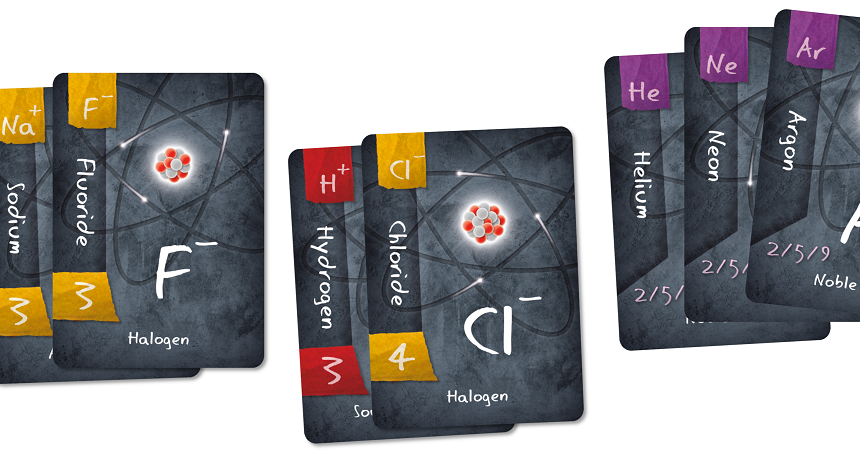Give a holiday gift of science
These presents offer scientific experiences and education

This card game offers a fun — and competitive — science experience.
JOHN COVEYOU
Share this:
- Share via email (Opens in new window) Email
- Click to share on Facebook (Opens in new window) Facebook
- Click to share on X (Opens in new window) X
- Click to share on Pinterest (Opens in new window) Pinterest
- Click to share on Reddit (Opens in new window) Reddit
- Share to Google Classroom (Opens in new window) Google Classroom
- Click to print (Opens in new window) Print
This time of year, the Internet overflows with science-themed gifts. From Bill Nye the Science Guy bowties to giant stuffed cells, you can buy a gift for any science geek. But why not share the gift of a scientific experience? Here are five gift ideas that entertain, educate and inspire. And many of them don’t cost a thing.
Answer life’s questions with science YouTube videos
YouTube isn’t just a site for cat videos. There are plenty of excellent videos that make science exciting for all ages. Those highlighted below are aimed at middle school and high school students.
Check out Gross Science, which covers everything from how diseases can make you give off a characteristic smell to whether poop can cure an infection. Or watch episodes of The Brain Scoop, a series based out of the Field Museum in Chicago. Offerings include how animal carcasses are prepared to become museum exhibits to interesting facts about the naked mole-rat. Finally, don’t miss It’s Okay to be Smart, which answers important questions such as “Why do we have to sleep?” and “Why do we laugh?”
Listen to scientists with science podcasts
There’s great science that’s free for listening. The Tumble Podcast offers science stories specifically geared toward kids, such as looking for planets outside the solar system and how a huge toad has taken over Australia. Science for the People is a radio show and podcast that looks at the how science interacts with our everyday lives (note, not all episodes are suitable for kids). And of course there is Science Friday, the weekly radio show covering the latest in the world of science.
Group entertainment with a scientific twist
Games are great gifts that let people play together. Why not take your cards up a notch with a scientific set? The Ion card game teaches players about basic chemical bonds, with a competitive twist. The board game Pandemic has players work together, racing against time to overcome a deadly virus. Or see how well you can evolve, building up cells with different parts in the game Strain.
The gift of data
Learn about science and give to research too! Citizen-science projects let people of all ages and abilities contribute. Many can be done from the comfort of home. All will teach participants something about the world around them. Snapshot Serengeti asks helpers to identify animals in camera traps and has just opened up a whole new “lost world” of photos. Bat detective has participants identify the flying mammals by their calls; it has just released a whole new set of bat calls from Ghana. Other projects include identifying floating forests of kelp in images from space and finding fossils in snapshots from a lake bed.
Turn holiday baking into a scientific experiment
Many people like to bake cookies for the holidays. If someone in your family will be doing a lot of baking, why not add some science to the batter? Pick one ingredient to change, and begin your own scientific experiment.
Follow Eureka! Lab on Twitter
Power Words
(for more about Power Words, click here)
citizen science Scientific research in which the public — people of all ages and abilities — participate. The data that these citizen “scientists” collect helps to advance research. Letting the public participate means that scientists can get data from many more people and places than would be available if they were working alone.
ion An atom or molecule with an electric charge due to the loss or gain of one or more electrons.
kelp Large seaweeds that are usually a type of brown algae. They grow underwater and form large forests, providing habitat for many organisms. Some kelp forests are so large they can be seen from space.
podcast A digital audio or video series that can be downloaded from the Internet to your computer or smartphone. Some podcasts also are shows that are broadcast on radio, television or other media.